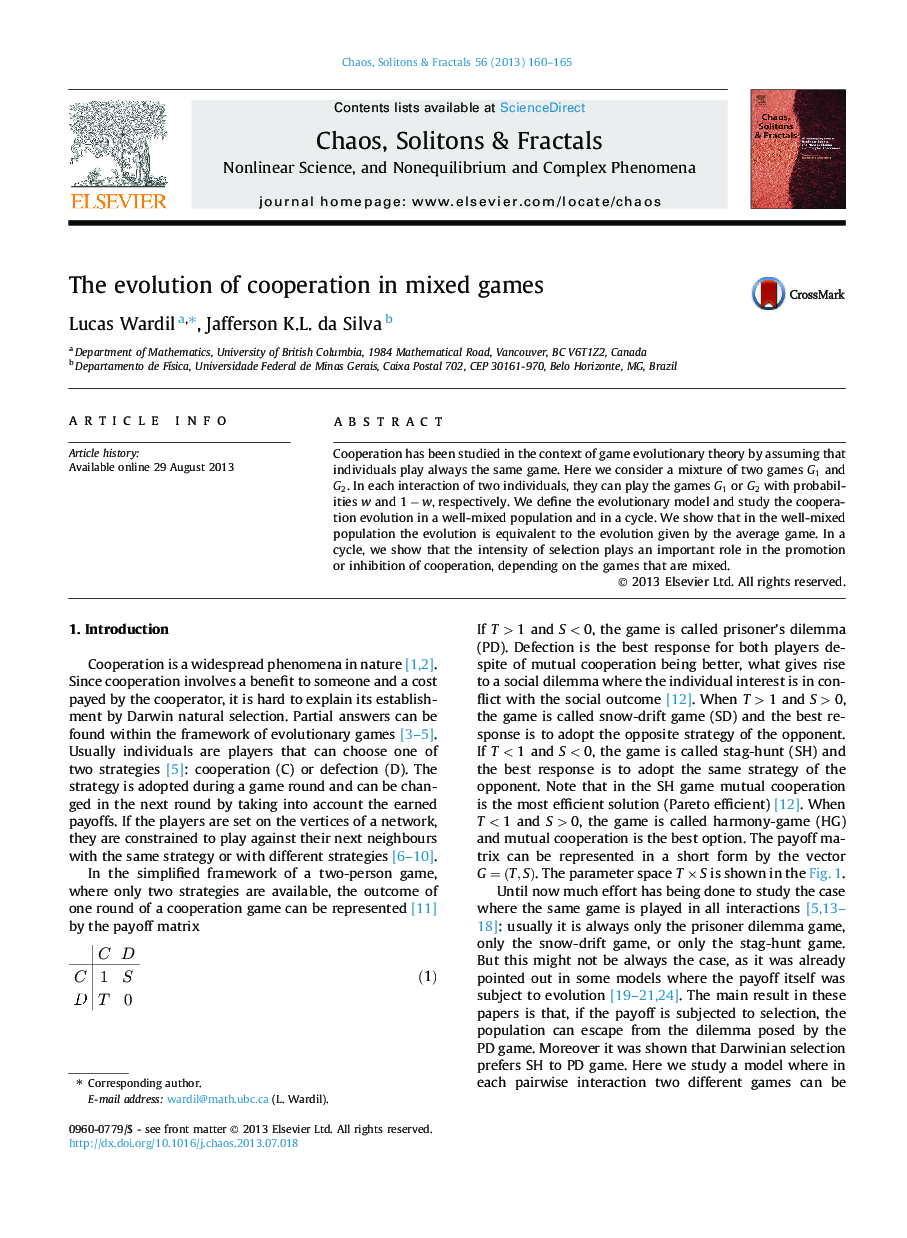| Article ID | Journal | Published Year | Pages | File Type |
|---|---|---|---|---|
| 1895647 | Chaos, Solitons & Fractals | 2013 | 6 Pages |
Abstract
Cooperation has been studied in the context of game evolutionary theory by assuming that individuals play always the same game. Here we consider a mixture of two games G1G1 and G2G2. In each interaction of two individuals, they can play the games G1G1 or G2G2 with probabilities w and 1-w1-w, respectively. We define the evolutionary model and study the cooperation evolution in a well-mixed population and in a cycle. We show that in the well-mixed population the evolution is equivalent to the evolution given by the average game. In a cycle, we show that the intensity of selection plays an important role in the promotion or inhibition of cooperation, depending on the games that are mixed.
Related Topics
Physical Sciences and Engineering
Physics and Astronomy
Statistical and Nonlinear Physics
Authors
Lucas Wardil, Jafferson K.L. da Silva,
